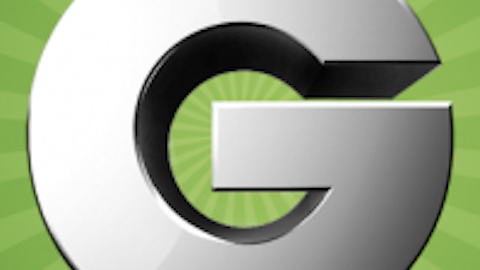Congress may have forged a deal to stave off the fiscal cliff to start 2013, but the effects of that agreement are only now starting to filter down to average Americans. The expiration of the payroll tax holiday could hit everyday consumers the most: The extra 2 percentage points of every paycheck collected from wage earners has already started to take a bite out of wallets across the country. Retailers may already be feeling the blow, and some economists predict it could hit GDP hard this year.
Some are saying that’s an overblown assessment, however, particularly in light of overall retail sales climbing in January despite the tax’s implementation. Let’s take a look at both sides of the argument to see just what kind of effect the payroll tax will have on businesses and consumers.
Is a big blow to retail on the way?
Analysts expect the payroll tax hike, from the previous 4.2% enacted in 2011 to 6.2% now, to take a bite out of the economy in 2013. The Congressional Budget Office expects the tax to knock GDP down by 0.5% for the year, while Lombard Street Research pegs the effects of the tax at 1% of personal disposable incomes. That’s no small amount for the tight wallets of consumers in this fragile economic recovery, and retail could be the first sector to feel the blow.

Wal-Mart and big-box retail rivals such as Target Corporation (NYSE:TGT) could be in line for more pain. While retail sales did increase 0.1% in January in line with economist predictions, it’s likely that post-holiday-season spending countered much of the effect of the tax hike. In the near future, customers will have to spend more judiciously — particularly with gas prices rising to a four-month high, chipping away further at consumer budgets. Wal-Mart’s U.S. CEO, Bill Simon, has seen the problem of shrinking consumer power, noting that the company needs to focus on market share — rather than pure dollars and cents — in a tough spending environment.
It’s worth noting that the implementation of the tax holiday two years ago didn’t see immediate effects, lending credence to the predictions that the payroll tax hike’s biggest blows are yet to come. However, there are reasons for optimism — and plenty of signs that a rising economy may counteract the tax’s negative impact on businesses and consumers alike.
Auto sales, unemployment, and more good news
First off, the gains in retail sales made during the two years of the payroll tax holiday were negligible. Between December 2010 and December 2012, sales industrywide grew more than 11.6%. By comparison, sales between December 2008 and 2010 grew around 11.8%. Granted, 2008 saw the depths of the recession slamming retail particularly hard; nonetheless, the tax holiday didn’t do so much for the sector that its expiration warrants much hand-wringing today. Much of the extra disposable income given to consumers likely went toward paying down debt, not exactly a trend conducive to stimulating the economy.
Auto sales are also bucking the payroll tax’s impact. January’s sales of light-unit motor vehicles came in at an annual rate of 15.3 million, right around December’s rate and close to the pace seen before the recession. Car sales have plummeted in the wake of the financial crisis, and the payroll tax hike hasn’t cut into momentum at Ford Motor Company (NYSE:F) and General Motors Company (NYSE:GM). There are reasons to hold back the optimism here: The average age of cars on the road hit 10.8 years in 2012, a record high that signaled consumers would need to replace aging vehicles one day soon.
Still, Ford predicts strong North American sales in 2013, and increased spending in the auto industry should counteract some of the damage of the payroll tax hike. Cars are an expensive purchase for the average buyer; that Americans are continuing to drive sales in this sector despite the tax increase is a good sign that consumers won’t be hurt as much as some experts touted.
Finally, declining unemployment could further minimize the negative impact of the payroll tax hike — at least on the economy at large. That won’t help consumers much, but with unemployment below 8% and the Fed seeing rates as low as 7.4% by the end of the year, increasing numbers of consumers with jobs and steady income will stimulate the recovery through additional spending.
Not the end of the world for consumers
There are plenty of measures that could stymie the economic recovery: From sequestration to a potential “currency war,” America’s not out of the shadow of the financial crisis just yet. Although the payroll tax hike has taken a chunk out of wages across the country and sent the retail sector into a panic, it doesn’t look like the tax will hurt all that bad in the end. With consumers spending much of the payroll tax holiday’s two years getting a handle on debt and auto sales continuing to shine despite the tax holiday’s expiration, the payroll tax hike won’t be able to kill the economy’s momentum.
The article Will the Payroll Tax Hike Cripple the Recovery? originally appeared on Fool.com and is written by Dan Carroll.
Fool contributor Dan Carroll has no position in any stocks mentioned. The Motley Fool recommends Ford and General Motors. The Motley Fool owns shares of Ford.
Copyright © 1995 – 2013 The Motley Fool, LLC. All rights reserved. The Motley Fool has a disclosure policy.




